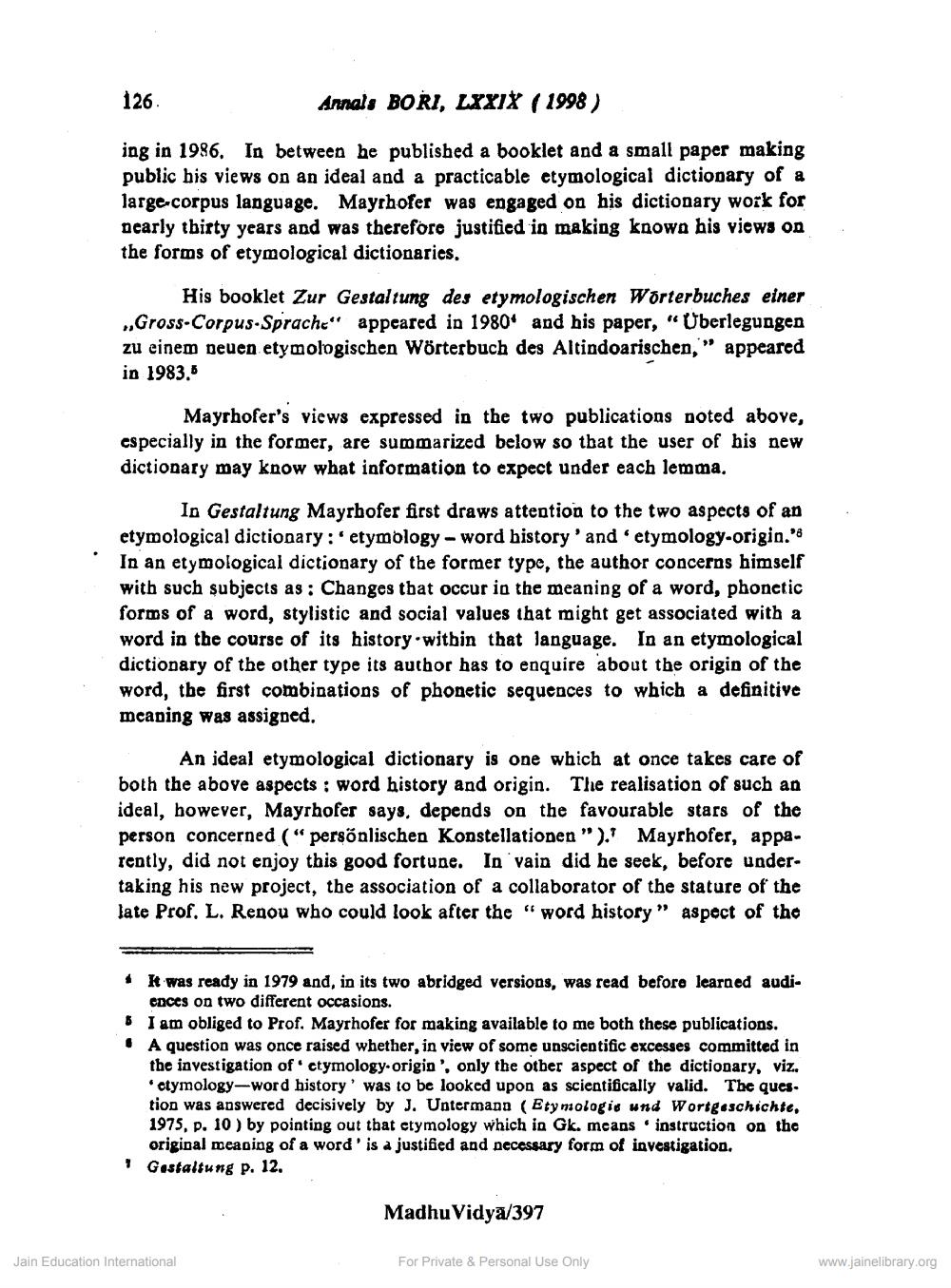________________
126
Annals BORI, LXXIX (1998)
ing in 1986. In between he published a booklet and a small paper making public his views on an ideal and a practicable etymological dictionary of a large-corpus language. Mayrhofer was engaged on his dictionary work for nearly thirty years and was therefore justified in making knows his views on the forms of etymological dictionaries.
His booklet Zur Gestaltung des etymologischen Wörterbuches einer „Gross-Corpus-Sprache" appeared in 1980 and his paper, "Überlegungen zu einem neuen etymologischen Wörterbuch des Altindoarischen," appeared in 1983.6
Mayrhofer's views expressed in the two publications noted above, especially in the former, are summarized below so that the user of his new dictionary may know what information to expect under each lemma.
In Gestaltung Mayrhofer first draws attention to the two aspects of an etymological dictionary: etymology - word history' and ' etymology-origin." In an etymological dictionary of the former type, the author concerns himself with such subjects as : Changes that occur in the meaning of a word, phonetic forms of a word, stylistic and social values that might get associated with a word in the course of its history within that language. In an etymological dictionary of the other type its author has to enquire about the origin of the word, the first combinations of phonetic sequences to which a definitive mcaping was assigned.
An ideal etymological dictionary is one which at once takes care of both the above aspects : word history and origin. The realisation of such an ideal, however, Mayrhofer says, depends on the favourable stars of the person concerned (“persónlischen Konstellationen"). Mayrhofer, apparently, did not enjoy this good fortune. In vain did he seek, before undertaking his new project, the association of a collaborator of the stature of the late Prof. L. Regou who could look after the "word history” aspect of the
• It was ready in 1979 and, in its two abridged versions, was read before learned audi
ences on two different occasions. I am obliged to Prof. Mayrhofer for making available to me both these publications. A question was once raised whether, in view of some unscientific excesses committed in the investigation of ctymology.origin', only the other aspect of the dictionary, viz.
ctymology-word history' was to be looked upon as scientifically valid. The ques. tion was answered decisively by J. Untermann (Etymologie und Wortgeschichte, 1975. p. 10 ) by pointing out that etymology which in Gk. means instruction on the
original meaning of a word' is a justified and necessary form of investigation. ! Gostaltung p. 12.
Madhu Vidyā/397
Jain Education International
For Private & Personal Use Only
www.jainelibrary.org




